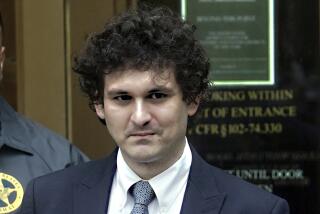What Is a Ponzi Scheme?
Definition: A fraudulent operation in which early investors are paid with money from new investors. Inducement is a promised high rate of return. History: In Boston in 1927, Charles Ponzi concocted a mail fraud in which he said he would pay investors $1.30 for each dollar they invested. He claimed to make money playing fluctuation in overseas postage rates, but he actually paid his longtime investors with money obtained from new investors. Ponzi took in more than $8 million in 13 months. In fact, when two Boston officers went to arrest him, Ponzi actually charmed them into investing. He was finally arrested in 1929, a few weeks before the stock market crashed. Convicted, he served about 13 years in federal prison. How it works: A Ponzi scheme generally begins by word of mouth. A promoter starts with friends and relatives, then their friends and relatives. Every month the initial investors receive checks with the promised rate of return. They show the checks to others, urging them to “get in on this and make some money.” Irrespective of how a promoter says he will make money, it’s possible only to pay longtime investors. The scheme is doomed because eventually the promoter is going to run out of new people. HOW TO AVOID BECOMING A VICTIM Be suspicious of unusually high rates of return. Ask how the company makes money to pay the high rate. Ask how long the firm has been in business, who its officers are and if it is a public or private company. Ask for references, then check them by calling the Better Business Bureau, the Securities and Exchange Commission, the Department of Corporations and other regulatory agencies. Most important, on all investment transactions demand a copy of a certified financial statement--a statement in which an independent outside accounting firm audits and certifies the company’s financial records. Beware of any company not able to produce a certified financial statement. Be aware of fraudulent financial statements. Most legitimate audits are done by the “Big Six” accounting firms: Deloitte & Touche; Ernst & Young; Arthur Andersen & Co.; Coopers & Lybrand; Price Waterhouse; or KPMG Peat Marwick. If you see one of those names, you can be assured that, while there may be the very rare human error, documents have not been falsified. WHOM TO CALL IF YOU ARE A VICTIM U.S. Postal Inspection Service, (818) 405-1200 Department of Corporations, Securities Enforcement Division, (213) 736-2520 Securities Exchange Commission, Consumer Affairs Division, (213) 965-3952
Source: U.S. Postal Inspection Service
More to Read
Inside the business of entertainment
The Wide Shot brings you news, analysis and insights on everything from streaming wars to production — and what it all means for the future.
You may occasionally receive promotional content from the Los Angeles Times.










